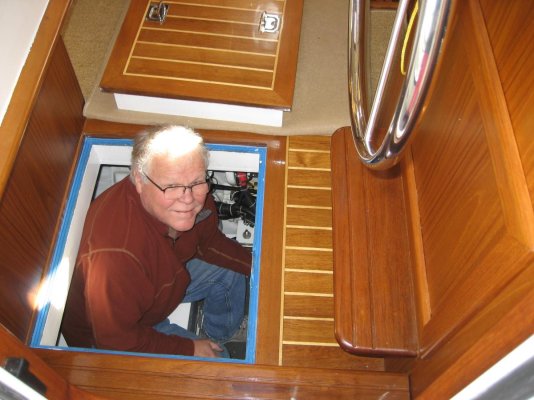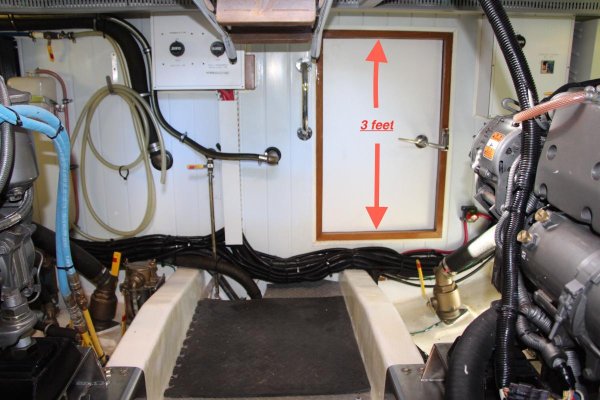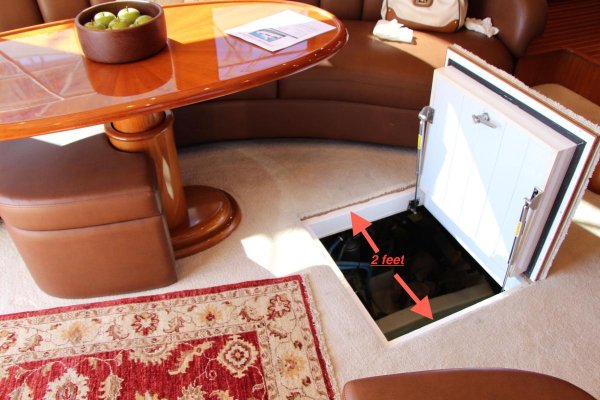You say "We". So I agree 32 feet is not enough room. However going all the way to 50 feet will allow you more room but also require probably double the maintenance time, effort and cost.
A lot of assumptions.
We just had our 60fter on the hard to get some caulking done, antifouling and topside fill and repaint.
Took 2 guys 9 days ( I mostly drank beer and pointed this time, very little effort on my part)
42 fter a few boats up from us with 3 working on it doing similar work will probably still be there next month at the snails pace they were going.
I reckon their bill will be considerably larger than ours.
Wrong choice of workers can blow out the bill easier than having a bigger boat
You probably have a single engine, will you go to twins? A lot more maintenance.
You probably have a single air conditioner, a 50 footer will probably have three,
You may have one genny, a 50 footer may very well have two,
We have single engine
Zero air-conditioning in the same latitudes as Florida
Single genset
Toilets? Way more sophisticated on a 50 footer,
How so?
Toilets we have on our 60 are the exact same ones we had on our 30.
Bottom paint, one gallon vs three
Yep, but hardly a deal breaker expense wise
We put 40 litres (10.5 G) on ours, took the guys less than a day to apply and about $1600 in paint.
Admittedly, being a timber boat there was a bit of prep time, but again,get the right guys and it doesn't have to cost that much.
Windows, now about 10, later about 20 or 25,
Anchor? now one about 25 pounds, later two or three at least 70 pounds each,
They are usually already on the boat, its not like they are replaced every season.
I could go on with the list but do I need to?

Add:
Power cord, a fifty foot 30 amp will run you about a hundred, You will need at least one 50 amp and probably two around 100 feet at about Two or three hundred bucks each
.
When on the hard we run our whole boat off of a 50ft 15amp lead.
Probably $30 at the local hardware store.
One night transient rate on a 32 footer will be out $50.00, Look for around a hundred on the bigger boat
Bigger boat can comfortably anchor out.
We don't need no steenkin marina berth (-;




